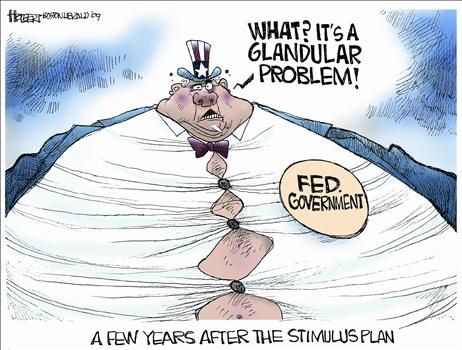The Federal Reserve (the U.S. central bank) is becoming less competent as the number of its functions increases, says Richard W. Rahn, a senior fellow at the Cato Institute and chairman of the Institute for Global Economic Growth.
The Fed suffers from conflicting responsibilities both within the organization and with other government agencies and actions:
- It is charged with maintaining full employment, but the long-run level of employment depends far more on government fiscal policy (tax rates, government spending and regulatory burdens) than on monetary policy.
- During the great inflation of the late 1970s, the money supply as measured by M1 (currency and checking accounts) grew by almost a record 40 percent in four years, and yet in the past year alone M1, has grown by almost 20 percent.
Once excess inventories are worked off and global commodity prices begin to rise again, inflation fears will come back quickly and people will rush to get rid of their dollars by buying "stuff." Unless the Fed can quickly extinguish all of the new money it has created, inflation will come roaring back.
The Fed needs to be split up, the Fed's bank regulatory functions need to be put into a separate agency and the new central bank should not be required to buy government debt.
The smarter folks in Washington understand that the trillions of dollars of new spending will be "paid for" largely by the "inflation tax," which will fall hardest on those without assets -- i.e. the poor.
READ MORE














No comments:
Post a Comment